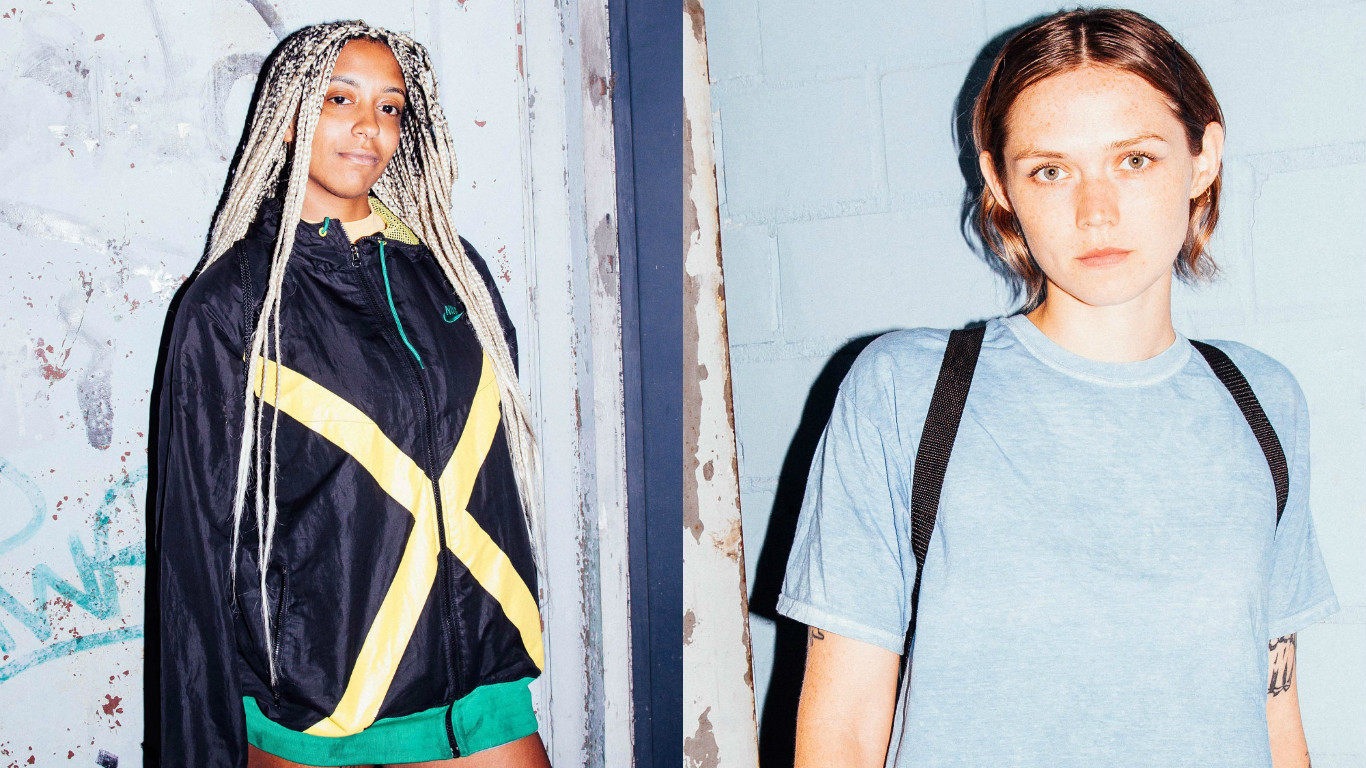Creamcake should be a familiar name to any faithful Berlin partygoer, given its hotly anticipated parties at Ohm and Südblock. But the women behind the nightlife series work on a lot of other projects too; one of them took place in August at Ohm. But instead of the sweat, smoke, and loud music that typically fill its events, the Creamcake team hosted a chiller conversation instead. Together with New York collective Discwoman — a platform and booking agency which represents cis-female, transgender, and genderqueer talent in electronic music — Creamcake held a Berlin workshop to teach women how to DJ. Each participant was asked only to bring a USB drive of their favorite music to mix, and about 40 women attended the workshop — which included tutorials on working Pioneer’s CDJ 2000 and mastering transitions. The end-of-day garden BBQ event turned into an all-night party.
i-D Germany caught up with Emma and Frankie from Discwoman and Anja and Daniela from Creamcake at the workshop to discuss why we need women’s collectives, why women are still underrepresented in music, and what role music plays in their lives.
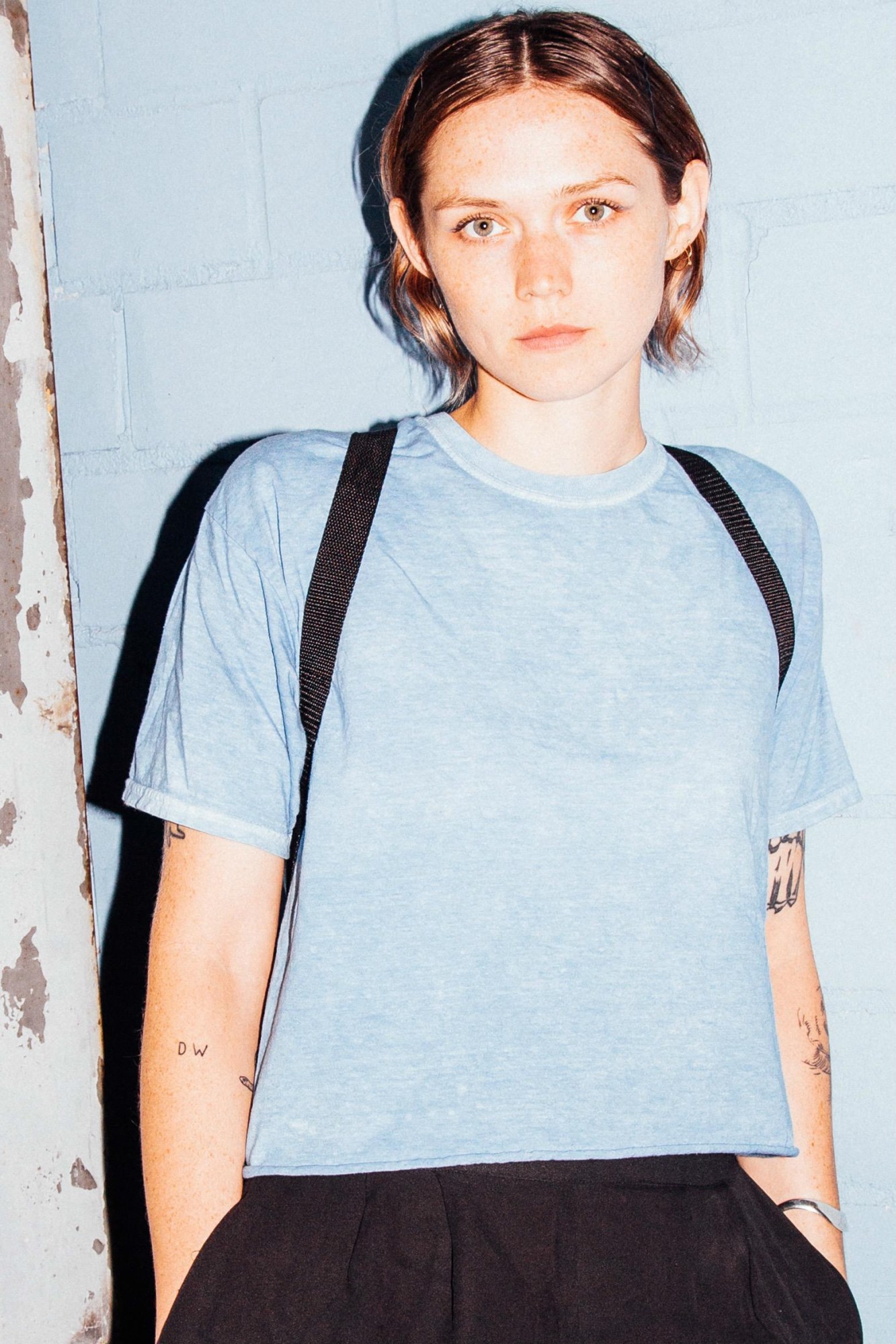
Emma, 27
Where are you from? New York.
What do you do? I’m a DJ at Umfang, a producer, and cofounder of Discwoman. I make music and try to give new talent a platform.
Why are you here today? I’m giving a workshop here. I don’t think women are encouraged enough to learn technical skills. And I think you can gain a certain amount of confidence in a group women, or in a group without men who want to explain the world to you.
Why does music play such an important role in your life? Music feels like something that you don’t have to justify. Blake Baxter once said that you can just be yourself when you produce music. Maybe that sounds very trivial at first, but it’s really the best feeling. When I was younger, I luckily came into contact with experimental music. Although it took a while for me to discover music as a career for myself, it was always an unbelievable important thing in my life.
What is your favorite track on your USB stick that you brought for the workshop to mix? It’s really hard to say! I was going through my records for two days, and I’m really happy that I have some of my favorite tracks in digital form that you can’t just buy that way.
Do you think that women are underrepresented in music, especially in the electronic music industry? Yes, they are, but only because people still ask, “Why are there so few women in the music industry?” I don’t think that’s necessarily true, but there’s just a greater lack of publicity and chances for women, which is why people in general still think that women don’t really exist in the music industry.
What can we do to fix that? Just decide to book female DJs. The same is true for music produced by women. Support women in what they’re doing and in what they really want to do, no matter how hard it may feel tho be or even if it’s against what people expect.
What is the best thing about Discwoman, and why are women’s collectives important today? Discwoman really gives me a lot of strength! It’s amazing to see how many possibilities have come out of a simple idea and that working together with people who have similar values to ours has lead to results that none of us would have ever dreamed of! Collectives are so important because you can grow something together without the risk of losing relevance in the field. Working together with a group helps you in gaining more strength than you would have alone — you’re always stronger together!
The new issue of i-D is The Female Gaze Issue. What does being a woman mean to you? For me, being a woman means being taken seriously they way you are — not having to live up to some standard and to just smile when someone says something like that to you.
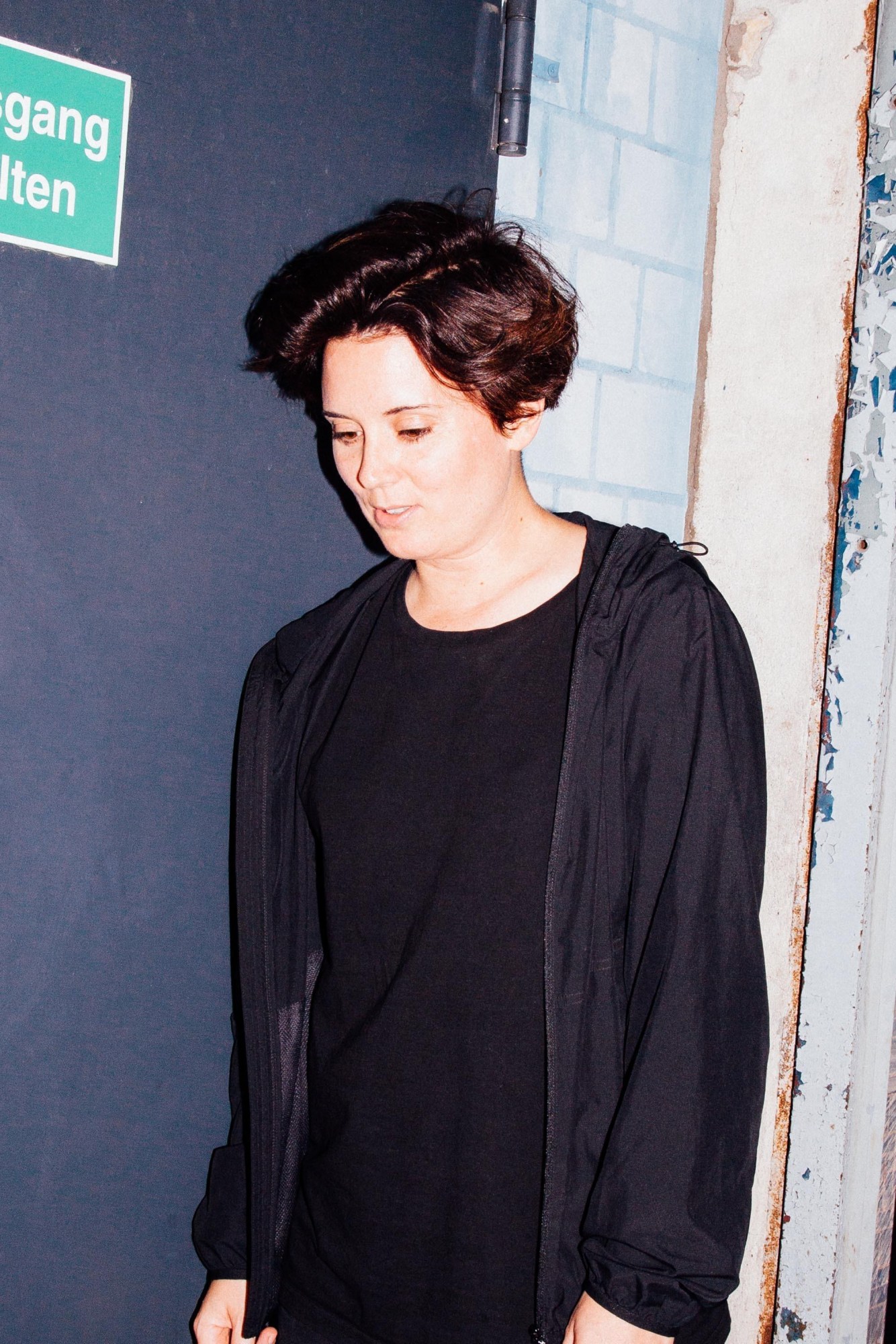
Anja, 24
Where are you from? Ingolstadt.
What do you do? Together with Daniela, I’ve been organizing parties, called Creamcake, for several years. Last year, we created a new project, the 3hd Festival. It’s a festival for the crossover between performance, art, and music in times of ubiquitous digitality, which will take place again in October. Aside from its conception, I’m responsible for the technical planning and organization.
Why are you here today? Daniela and I organize together these CJD workshops for women and the LGBT community. Aside from that, I see myself as the main person in charged of the grill and the lighting board.
Why do you think events like these are so important? Women and the LGBT community still find little space in the music world to try things out and be able to blossom. With events like these, we’re trying to support an exchange and to strengthen the community’s ideas. The participants of the workshop can learn how to use the technology and take their first steps on CDJs in a safe space far away from judgements.
Why does music play such an important role in your life? From the church choir to secret basement parties, I’ve been able to experience music in its most whimsical forms. Even back then, I was organizing events with electronic music, but that wasn’t really underground. In Berlin, I organized my first queer parties, primarily an event series of a classmate called Milkshake; that was the first time I experienced the idea of a community and music that had nothing to do with mainstream taste. In 2011, Daniela and I started our own series called Creamcake, as there were certain edges and aspects of the popular nightlife scene in Berlin that were missing. We have a lot of respect for artists and musicians in the Berlin scene, but we quickly realized that our idea was different. Ideologically, we’re strongly influenced by digital media and social networks; platforms like Soundcloud enabled us to discover artists that were outside the classic marketing and promotion pathways. The only thing that matters on these platforms is quality.
What is your favorite track on your USB stick that you brought for the workshop to mix? All of the productions by LSDXOXO, one of my absolute favorites at the moment.
Do you think that women are underrepresented in music, especially in the electronic music industry? Definitely. Some things have changed in Berlin’s subculture in the last few years, but many women are still inhibited by the dominant structures and views. Real support and exchange within groups and networks has taken place, but it took a long time and a lot of effort. The community always defended itself against prejudices by breaking structures and creating role models. In organizing our events, we’re bringing together open, talented and innovative people, giving them a feeling of togetherness and being part of the development.
What can we do to fix that? Tearing down boarders, creating role models, and offering spaces for exchange.
What is the best thing about Discwoman, and why are women’s collectives important today? Courage, expertise and solidarity — these aspects distinguish the collective. Everyone taking part in the workshop today can experience how a group of confident women, who have an exact idea of what they want to do, are able to encourage and inspire other women and LGBT people. It’s an unbelievable positive vibe you can feel.
The new issue of i-D is The Female Gaze Issue. What does being a woman mean to you? Femininity and being a woman means is everything that society thought women weren’t for centuries. Femininity can be anything. We need to break apart old and normative forms and to redefine them.
Related: Meet the female collective advancing equality in electronic music
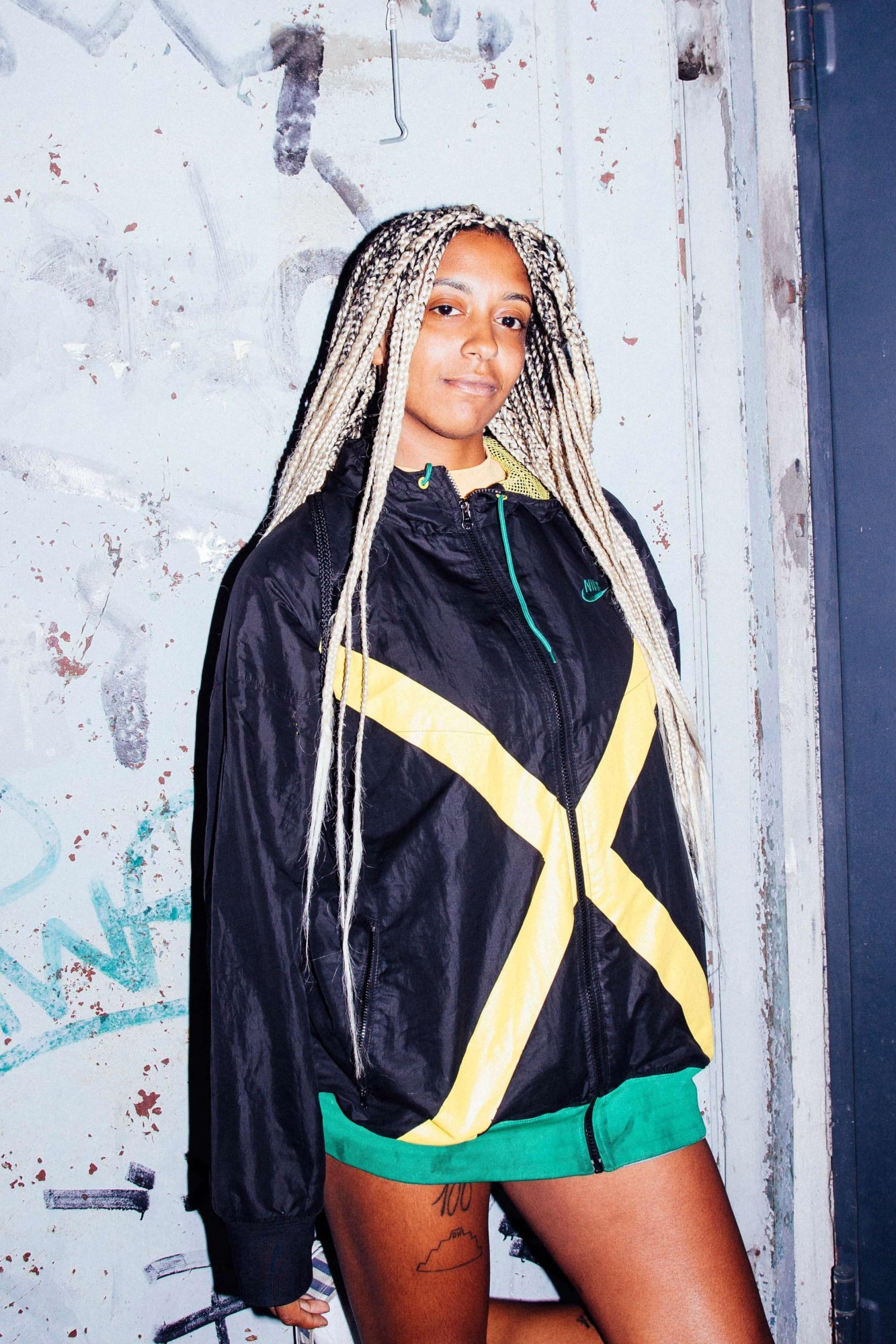
Frankie, 29
Where are you from? From London, but now I live in New York.
What do you do? I’m a part of Discwoman, a DJ agency and platform that’s focused on people who identify with women.
The new issue of i-D is The Female Gaze Issue. What does being a woman mean to you? Events where you learn something and can participate for free are never not important!
How did you get into music? When I was little, my mom always used to listen to Mary J Blige. And, of course, [I attended] illegal raves on campus in college.
Do you think that women are underrepresented in music, especially in the electronic music industry? Definitely. The patriarchy is the reason that Discwoman exists in the first place.
What can we do to fix that? To not stop creating a space for people to experience who experience misogyny and transphobia. People can change, but you can’t really always rely on that.
Why are women’s collectives so important these days? Women’s collectives will be important as long as misogyny and the patriarchy exist. We started Discwoman to celebrate people who identify as female; we’re still doing that, that’s what I like about it.
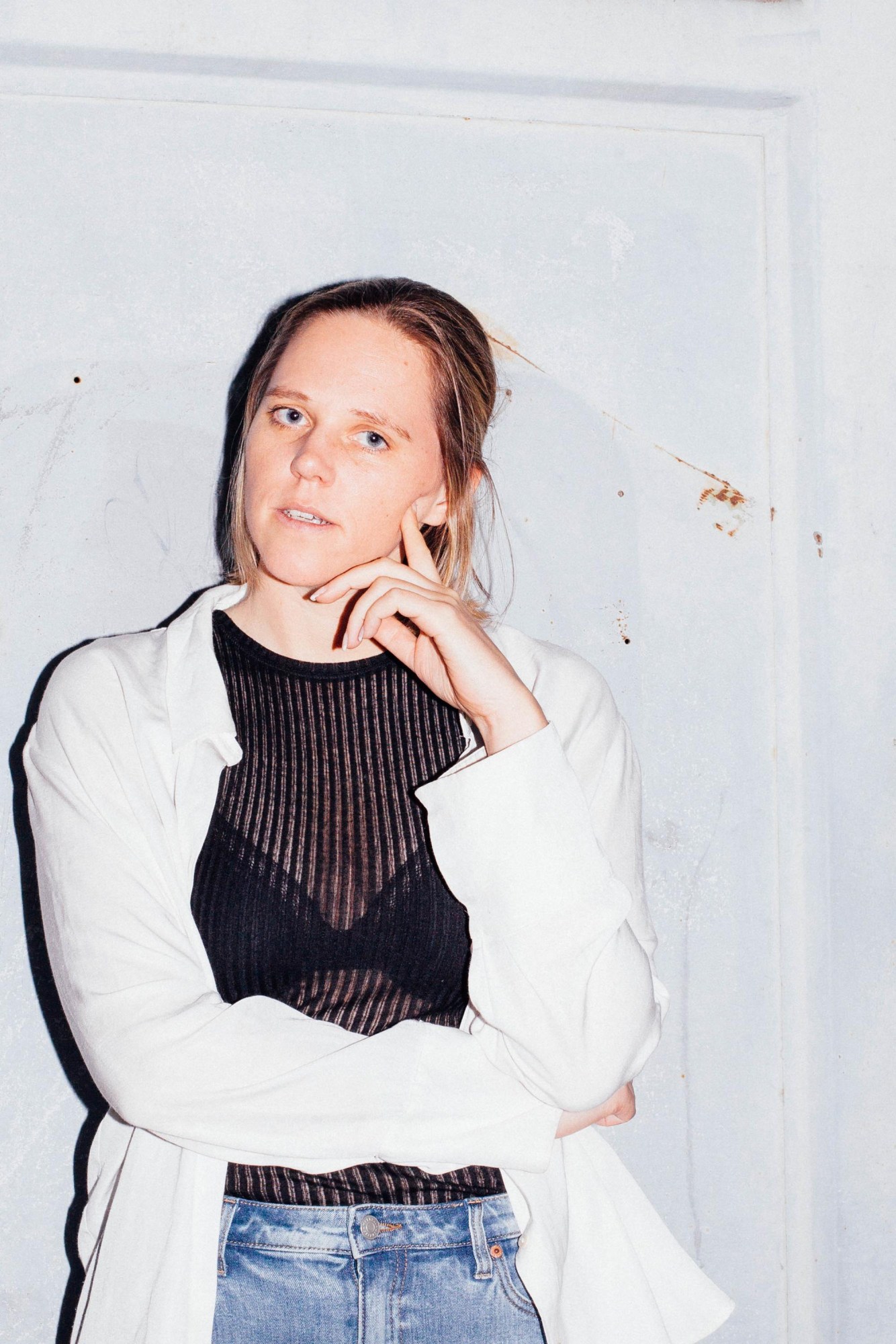
Daniela, 32
Where are you from? I’m from Ingolstadt, but I’ve lived in Berlin since 2007.
What do you do? I study Museum Management and Communication at HTW Berlin, and I’m a cofounder and music curator for the event series, Creamcake. Since 2015, I’ve been organizing the 3hd Festival with Anja Weigl. Using performance, music, and art, the festival will analyze and discuss the questions that come up in our time of a total digitalization. [We’ll consider] politics and community, as well as economic insecurity and communications.
Why are you here today? To find out how the audience responds to this kind of workshop, what kind of people come, and how open it is. It’s great to see how the participants learn new tricks and tips and are experiencing changes in their DJ style. When practicing, it’s all about training your musical ear and getting into a routine with the equipment.
Why do you think events such as this one are so important? This workshop and similar events offer an amazing chance to expand your self-awareness, personal goals, abilities, and knowledge. [Participants] able to be part of an international community and create new connections with other women and queer [people].
Why does music play such an important role in your life? I listened to a lot of music when I was a teenager. As the internet got bigger, I started downloading tons of music from Napster and Audiogalexy and started burning my own mixes to drive to. Then I met Anja in Club Suxul, where she and a few other friends were working. We started our first party series, Disconnected, there. In 2007, we moved together to Berlin and discovered the electronic music scene here together.
What is your favorite track on your USB stick that you brought for the workshop to mix? My favorite track at the moment is “LIFE,” from the EP, Powerpoint, by the Finish artist Keiska, which we just released on our own label, Creamcake. I love playing with a cappellas and instrumentals when I DJ.
Do you think that women are underrepresented in music, especially in the electronic music industry? Of course. There are many barriers that prevent women from starting to DJ and produce. One of my personal problems in running the festival, is that many of the decisions — for example: which artists will be supported, booked or interviewed — are mainly made by men. That’s exactly what we want to change.
What can we do to fix it? We need more role models and a different sense of self-awareness for women. Women need to become more confident to do what they want, and experiment with new things.
What is the best thing about Discwoman? I like how Discwoman does their own thing and were able to create an international platform for queer [people] and women in such a short time. They’re changing the way women are treated in the music scene and the prejudices they’re confronted with.
The new issue of i-D is The Female Gaze Issue. What does being a woman mean to you? To me, feminist thought always means leaving my own comfort zone.
Related: 8 female producers behind today’s most innovative sounds
Credits
Text Alexandra Bondi de Antoni
Interviews and assistance Juule Kay
Photography Tereza Mundilová
